Home › Board
Board
The MHCC is a national not-for-profit corporation and a registered charity. We are supported by funding from Health Canada, partnerships with federal, provincial and territorial governments, foundations, private sector organizations, and donations from the public.
Our board, executive leadership team, directors, and advisory committees all share the same goal — creating a better mental health system for all Canadians.
MEET OUR TEAM
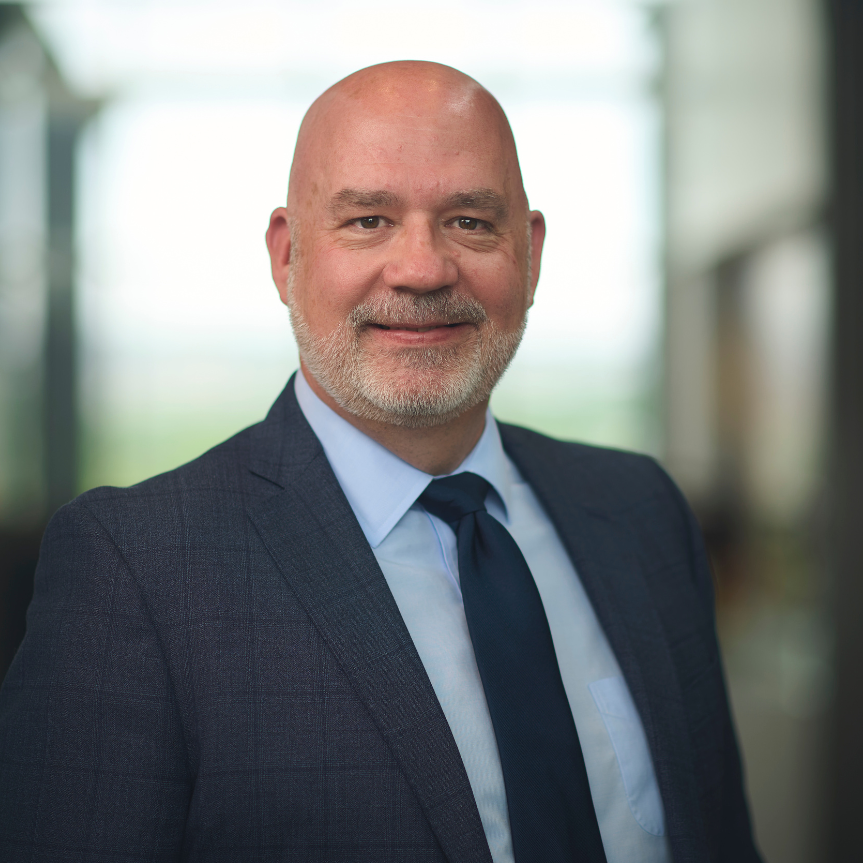
Chuck Bruce
Chuck Bruce
- Chair | St. John's, Newfoundland and Labrador
Chuck Bruce is an impassioned leader, lifelong learner, and national mental health advocate with more than 30 years of senior executive experience. As the inaugural CEO of Provident10, Chuck oversees the administration of Newfoundland and Labrador’s Public Service Pension Plan, managing an $11B fund and serving over 60,000 members with integrity and a commitment to excellence.
In addition to his leadership at Provident10, Chuck has been affiliated with the Mental Health Commission of Canada since 2007, supporting its mission to improve mental health outcomes for all Canadians. His leadership has championed workplace mental health, suicide prevention, and innovative e-mental health solutions, reflecting his belief that psychological health is integral to organizational success.
Chuck holds professional credentials as a Chartered Professional Accountant (CPA, CMA), Certified Financial Planner (CFP), and Chartered Director (C.Dir), along with a Master of Laws (LLM) in Business Law. He combines deep expertise in governance, finance, and compliance with a dedication to public service and mental health advocacy.
Chuck also contributes to national organizations dedicated to advancing governance, retirement income, public policy, and community well-being.
Watch Mr. Bruce’s introductory message.
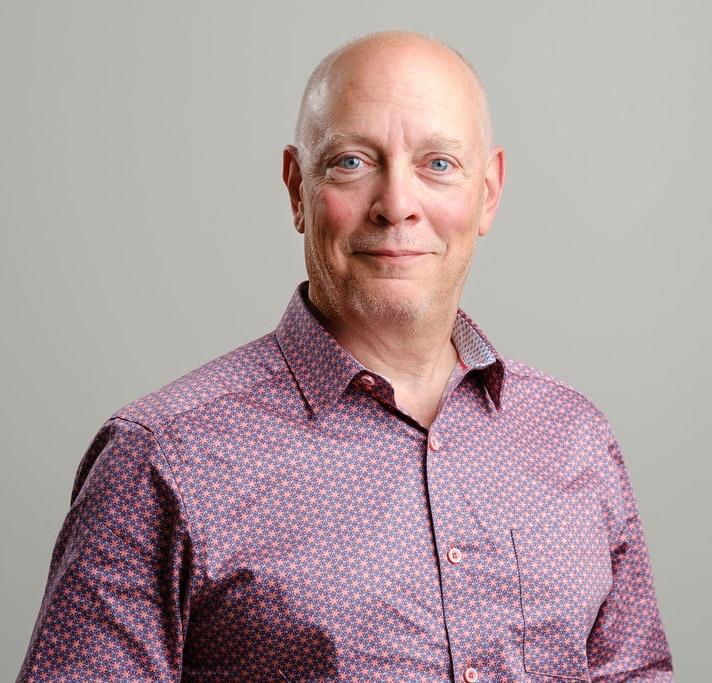
André Delorme
André Delorme
- Granby, Quebec
Initially trained as a mathematician specializing in information technologies, André Delorme has been a psychiatrist for over 25 years. He works within an assertive community treatment team at Granby Hospital’s Integrated Centre for Health and Social Services (CIUSSS) in Estrie.
Dr. Delorme also has extensive experience as an administrator. After serving as head of the CIUSSS psychiatry department and director of professional and hospital services, he became head of psychiatry at the CHUM Research Centre, and then director of mental health and director general of mental health at the Quebec Ministry of Health and Social Services. He is also on the Frayme board of directors.
In 2017, he was selected as one of 150 CAMH Difference Makers in mental health.
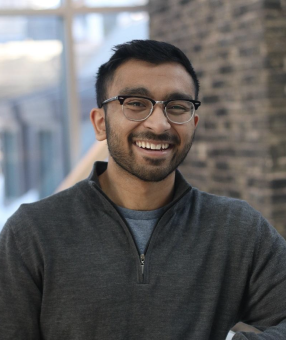
Armaghan (Army) Alam
Armaghan (Army) Alam
- Toronto, Ontario
Armaghan (Army) is currently a general surgery resident at the University of Toronto. He has long been passionate about advocating for youth mental health and providing peer support to help ensure that these resources are available and readily accessible across Canada. He also recognizes the importance of educating primary care physicians and other health-care providers on how to become better mental health allies.
During his undergraduate studies at McGill University, where he obtained a bachelor of science (Hons.) degree in anatomy and cell biology, Army was intimately involved in mental health on campus as chair of the Peer Support Centre, a student-run organization providing confidential, non-judgmental mental health support to students. Based on these experiences, he served as a mental health commissioner at the Students’ Society of McGill University, where he worked with McGill’s administration to develop better mental health policies and launch the Rossy Student Wellness Hub.
Following his time at McGill, Army obtained an MD at the University of British Columbia while serving as class president, where he prioritized student wellness and inclusivity. As a representative on the Undergraduate Medical Education COVID-19 Implementation Task Force, he helped to ensure academic rigour during the pandemic while protecting students, staff, and patients. For his involvement, he was awarded the Canadian Medical Hall of Fame Award for Medical Students, the Canadian Medical Association Award for Young Leaders (Student), and UBC’s prestigious Westbrook Scholarship.
Before joining the board, Army was a Mental Health Commission of Canada’s Youth Council member. He also co-founded the Canadian Peer Support Network, which sought to bring peer support to institutions across the country, and now sits as an adviser for the Bell Let’s Talk Diversity Fund.
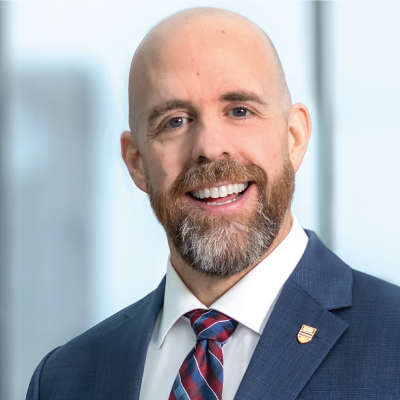
Benoit-Antoine Bacon
Benoit-Antoine Bacon
Dr. Benoit-Antoine Bacon started a five-year term as the 17th President and Vice-Chancellor of the University of British Columbia on November 1, 2023. In this role, he leads the academic mission and operations of UBC as it continues to evolve as a global institution that is consistently ranked amongst the best universities in the world.
Before joining UBC, Dr. Bacon served in several senior leadership roles, including as President and Vice-Chancellor of Carleton University in Ottawa, Provost and Vice-Principal (Academic) at Queen’s University in Kingston, and as Provost and Vice-President (Academic Affairs) at Concordia University in his hometown of Montreal, where he was recognized with an award as Sustainability Champion.
In over 15 years of academic leadership, he has demonstrated success in advancing research and innovation, teaching and learning, student life and the student experience, strategic and budget planning, campus development and large infrastructure projects, labor relations, alumni relations and fundraising, government relations, Indigenous initiatives, diversity and inclusion, international affairs, as well as institutional reputation.
Dr. Bacon holds an MSc and PhD in neuropsychology from the University of Montreal, after which he undertook a post-doctoral fellowship at the University of Glasgow, Scotland. His first degree was a B.A. (Honours) in Psychology from Concordia University in Montreal.
His research in the field of cognitive neuroscience focuses on the links between brain activity and perception in the visual, auditory and vestibular systems, as well as on multisensory integration. He remains active in research and is currently a member of the Cerebrum Center at the University of Montreal and the Djavad Mowafaghian Center for Brain Health at UBC.
Sharing his own lived experience, he advocates nationally for open conversations about mental health and substance use. These efforts have been recognized with a Transformational Leader Inspiration Award from the Royal Ottawa Hospital, and the Honorary Presidency of the Canadian Psychological Association (CPA).
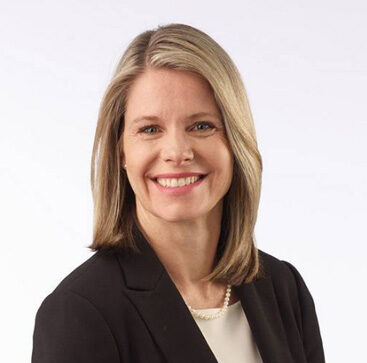
Beth Tyndall
Beth Tyndall
- Chief People Officer at Ontario Teachers’ Pension Plan
Beth Tyndall is Chief People Officer at Ontario Teachers’ Pension Plan and leads the People and Culture function across its global offices in Toronto, London, Hong Kong, Singapore and San Francisco.
Beth joined Ontario Teachers’ in 2017 after more than a decade at Deloitte, where she held various roles including National Talent Leader for the Audit, Tax and Consulting practices. Prior to her time at Deloitte, she worked for many years in the technology sector.
Over the past five years at Ontario Teachers’, Beth and her team have transformed the advisory and operational capabilities of the People & Culture function and reimagined the organization’s approach to talent, wellbeing, change, culture and leadership. Her team was recognized as the 2019 Canadian HR Team of the Year and she was featured on the HRD Global 100 list of leading HR professionals.
Beth is also a true champion of inclusion and mental health. In addition to ensuring that inclusive policies and practices are foundational to Ontario Teachers’ transformation, she led the implementation of an enterprise Inclusion & Diversity Leadership Council, employee resource groups and was instrumental in establishing several industry partnerships. In July 2020, she was recognized by Women in Capital Markets as one of their 2020 Champions of Change and selected as one of the recipients of the Globe and Mail Report on Business magazine’s inaugural Best Executive Awards.
Beth completed her ICD.D certification from the Institute of Corporate Directors and previously served on the board of directors for two not-for-profit organizations. She is also on the Board of Directors for Amica Senior Lifestyles and Cadillac Fairview OTPP portfolio companies.
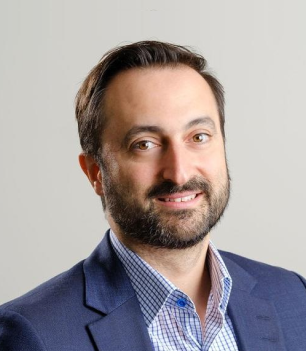
Didier Jutras-Aswad
Didier Jutras-Aswad
- Montreal, Quebec
Didier Jutras-Aswad is an Addiction Psychiatrist and Chief of Staff of the Department of Psychiatry at the Centre hospitalier de l’Université de Montréal (CHUM). He is also a Full Professor at the Université de
Montréal (UdeM).
Didier founded and continues to lead the UdeM Expertise and Collaboration Centre in Concurrent Disorders, which works to advance best practices for helping individuals with mental health and substance use challenges.
As a principal scientist at the CHUM research centre, Didier focuses on substance use disorders and their connection to mental health conditions. He leads national clinical trials aimed at developing and
evaluating effective treatments and care models.
Didier has played various roles in shaping policies and research strategies at the provincial, national, and international levels, working to implement evidence-based healthcare services for people with substance use and mental health disorders. In addition to his research, he is a passionate advocate for mental health and equity, frequently speaking with the media to raise awareness and address the challenges faced by people who use substances.
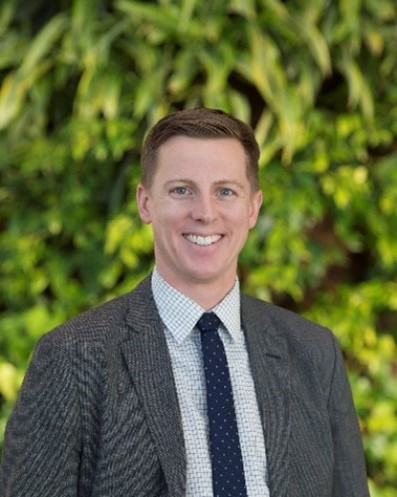
Evan Romanow
Evan Romanow
- Deputy Minister, Ministry of Mental Health and Addiction, Government of Alberta
Evan Romanow was appointed Deputy Minister of Alberta’s Ministry of Mental Health and Addiction in June 2023. In this role he supports the Minister and is responsible for leading implementation of Alberta’s recovery-oriented system of care and coordinating all Government of Alberta resources dedicated to delivering mental health and addiction services across the province.
Since joining the Government of Alberta in 2011, he has served as an executive and senior leader in the ministries of: Health; Seniors & Housing; Executive Council; Innovation & Advanced Education; Human Services; and International & Intergovernmental Relations.
He currently serves on the Board of Directors for Alberta Health Services, and worked and volunteers in the non-profit and voluntary sector with multiple community organizations.
Evan has undergraduate and Master’s degrees in Political Sciences from the University of Alberta, and is bilingual in English and French.
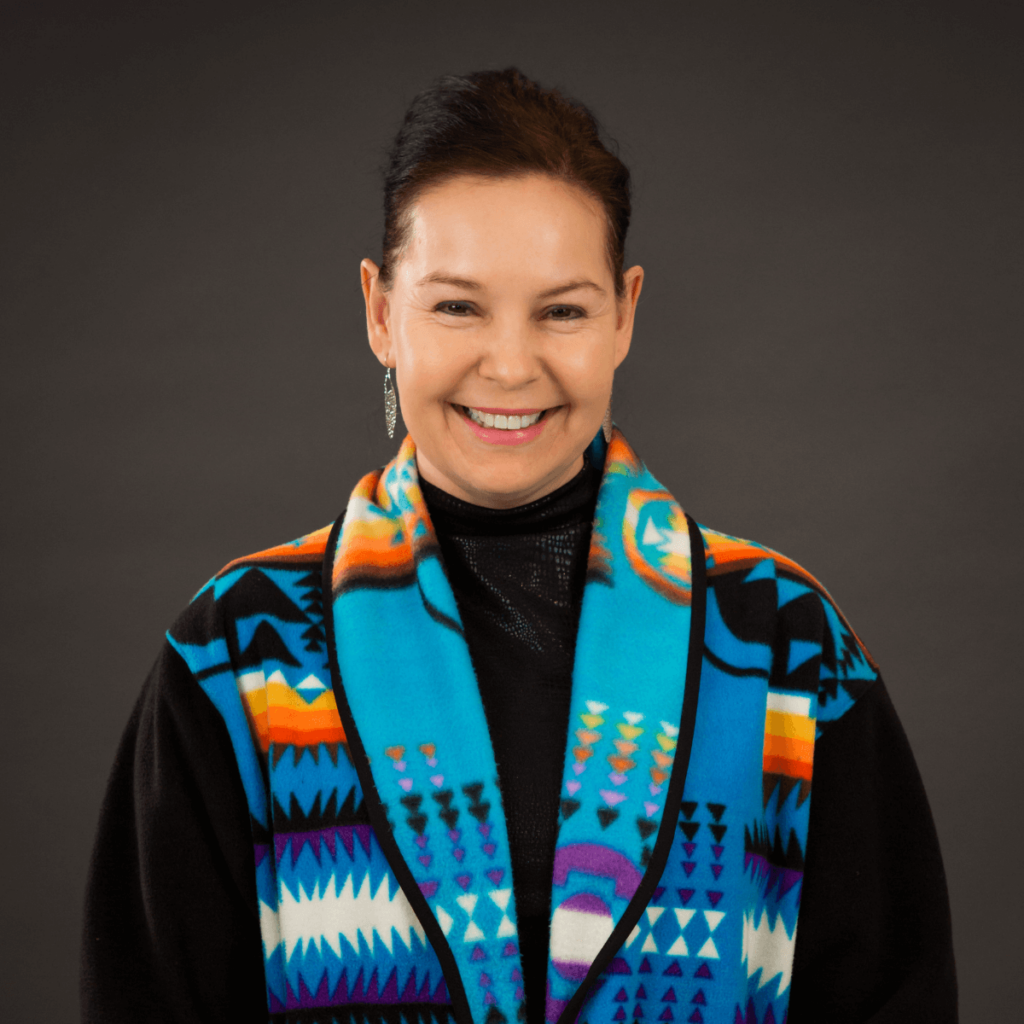
Holly Graham
Holly Graham
Holly Graham is an Associate Professor in the Department of Psychiatry at the University of Saskatchewan and a member of the Thunderchild First Nation. She has an extensive background in healthcare, working as a Registered Nurse and as a Registered Doctoral Psychologist. In her private practice as a psychologist, she works with individuals who have experienced trauma, including those with post-traumatic stress disorder (PTSD).
Her research primarily focuses on Indigenous health, mental health, and wellness. Holly was awarded an Indigenous Research Chair in Nursing, funded by the Canadian Institutes of Health Research (CIHR), where she supported reconciliation in nursing through education, research, and practice. She is deeply involved in various initiatives, including land-based wellness camps for Indigenous youth and the creation of the first Indigenous Nursing Professional Practice Group in Saskatchewan. Dr. Graham has also been active in promoting anti-racist education and Indigenous-led health research, demonstrating a strong commitment to Indigenous communities and health equity.
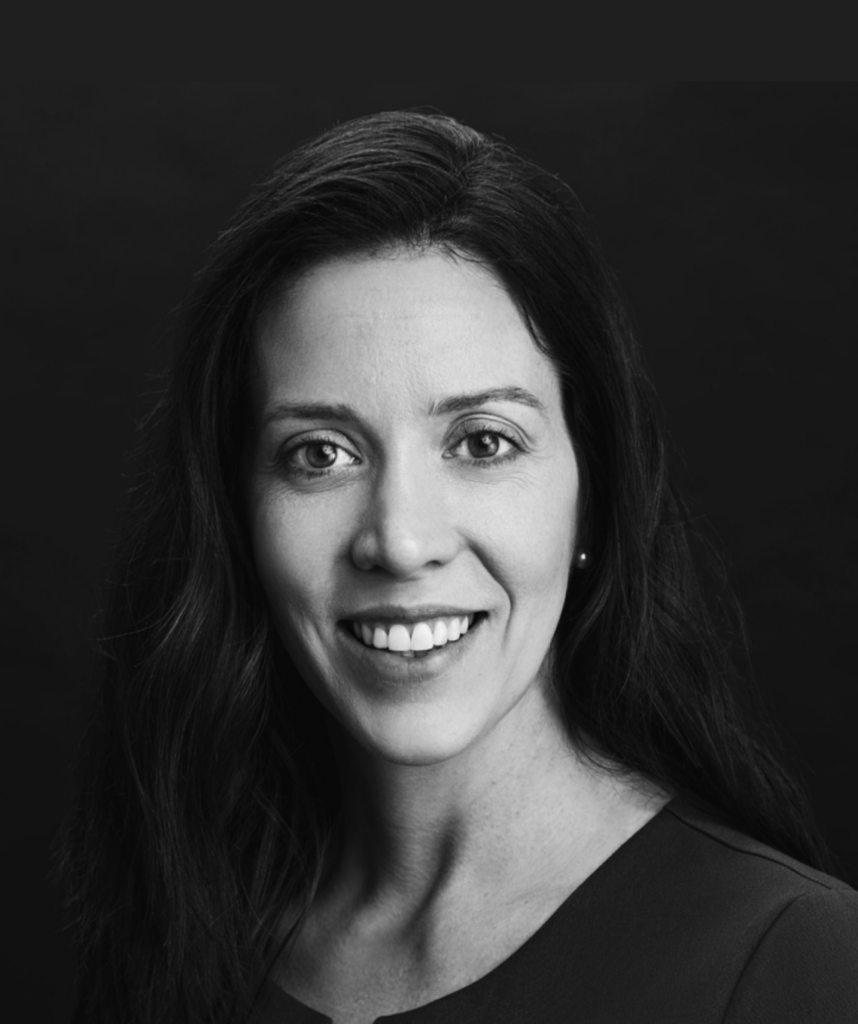
Julie LeBlanc Hultberg
Julie LeBlanc Hultberg
Julie LeBlanc Hultberg is a lawyer with nearly 20 years of experience in health law and professional regulation.
A Partner at Stewart McKelvey, her practice includes representing regulated health professionals in matters related to professional conduct and fitness to practice. She has also advised professional regulators on procedural fairness, policy development, and legislative frameworks.
Julie contributes to national conversations on health law. She is past Chair of the Canadian Bar Association’s National Health Law Section and has spoken on a broad range of topics, including the impact of health and wellness on standards of care.
Julie also serves as Director of the New Brunswick Law Foundation, as member of the Law Society of New Brunswick’s Complaints Committee, and as Director of the London Goodenough Association of Canada. She has also served on municipal and cultural governance bodies in Moncton and Dieppe.
Julie holds a Master of Laws from the London School of Economics and Political Science, a Bachelor of Laws from the University of New Brunswick, and a Bachelor of Science in Biochemistry from Université de Moncton. She is fluently bilingual in French and English.
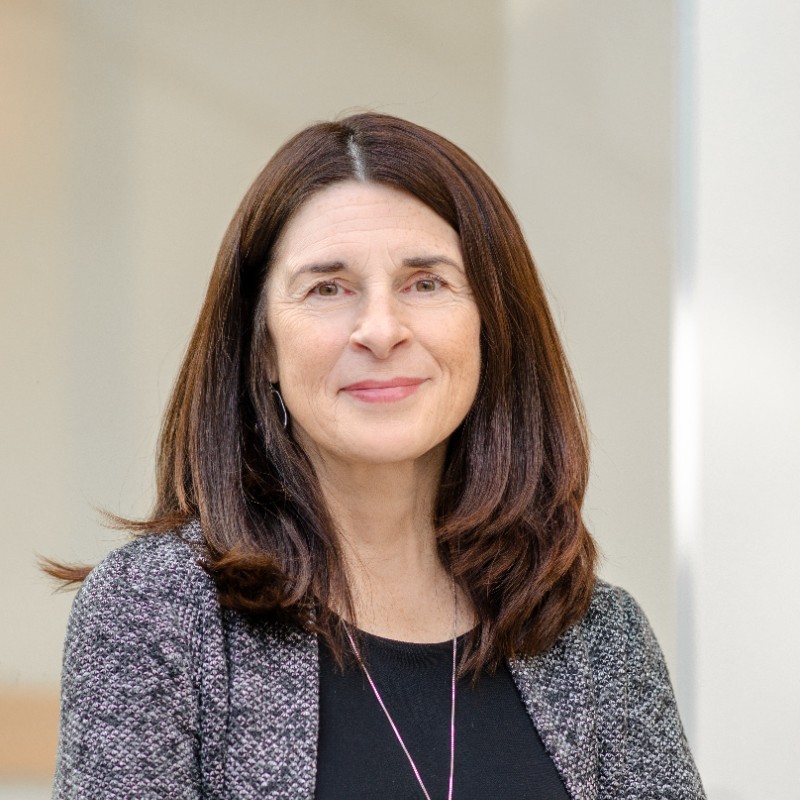
Roxanne Anderson
Roxanne Anderson
Roxanne Anderson has over 30 years experience leading challenging transformations that were possible through uniting teams to develop and implement strategies that resulted in transformational change and a shift in work culture and processes, while leveraging technology. Roxanne was a managing partner with PwC and is currently Senior Vice President of Business Optimization and Chief Financial Officer of the Victorian Order of Nurses (VON), a leading home and community health care organization.
Roxanne has been a mental health advocate for many years starting with her profound personal experiences to being a board member of the Royal Ottawa Health Care Group and its Research Institute. Currently, Roxanne is a board member of the Distress Centre of Ottawa and Region which provides suicide prevention, crisis intervention and emotional support to individuals in need.
Roxanne has many years of governance experience as a board member of various organizations including privately held companies, governmental agencies, publicly traded companies and not for profit organizations. In addition to the Distress Centre of Ottawa and Region, Roxanne is on the board of the Public Health Agency of Ontario.
Roxanne is a FCPA, FCA, MBA and ICD.D

Sarah Lawley
Sarah Lawley
- Assistant Deputy Minister, Health Policy Branch, Health Canada
In her current role as Assistant Deputy Minister (ADM) of the Health Policy Branch for Health Canada, Sarah provides expert level advice on complex health policy issues. She leads the development of effective health policies and strategies through consultation and engagement, and is responsible for addressing priority, emerging, and cross-cutting issues that impact the health of Canadians.
In her previous role as the ADM, Communications and Public Affairs Branch (2021-2025), she led innovative, evidence-based communications on complex health and public health issues, led risk and crisis communications responses to emerging issues, and delivered targeted health promotion initiatives, leveraging expertise in strategic communication, public education, marketing, advertising and partnerships and digital media to support improved health outcomes for everyone in Canada.
As the ADM, Consultations & Communications at Finance Canada (2019-2021) Sarah led cross-country Pre-Budget Consultations and was responsible for the delivery of the annual federal Budget and Economic Update. In response to the COVID-19 pandemic, she led the public communications in support of the Economic Response Plan – the most significant undertaking in the history of the Department of Finance.
She has previously held executive level positions in both international affairs and communications functions within the federal government. In 2018, she was included in the inaugural list of Canadian Women in Global Health for her work representing Canada on the global stage, including on issues of mental health.
Sarah holds a B.A. with Highest Honours in Journalism from Carleton University.
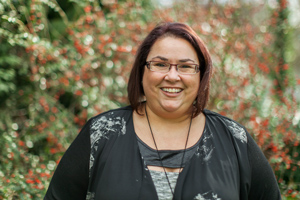
Sonia Isaac-Mann
Sonia Isaac-Mann
- Sioux Lookout, Ontario
Sonia Isaac-Mann is from Listuguj Mi’gmaq First Nation in Quebec. She holds a Master of Science degree in Medical Sciences – Public Health Sciences with a focus on Population Health from the Faculty of Medicine at the University of Alberta. She also holds a Bachelor of Science Degree from Bishop’s University.
Sonia has worked in First Nations health for over 20 years and has extensive community, regional and national experience. She has built capacity to impact health systems directed toward system innovation and transformation, health promotion, research and data, prevention, intervention, health education, advocacy, policy, program design, implementation and evaluation. She advocates for culturally appropriate health policies that lead to better programs and health service delivery for First Nations.
Before joining the Sioux Lookout First Nations Health Authority (SLFNHA) in 2023 as the CEO & President, Sonia served as the Vice President of Community Health and Wellness, Programs and Services at the First Nations Health Authority (FNHA) in British Columbia (BC) for 8 years and worked with the Assembly of First Nations (AFN) in Ottawa for over 10 years in several roles, including the Associate Director of Health.
Sonia has experience with numerous boards and committees, including the Mental Health Commission of Canada (MHCC), the Canadian Institute for Health Research (CIHR), Canadian Northern and Remote Health Network – Canadian Foundation for Healthcare Improvement (CFHI), Thunderbird Partnership Foundation (formerly the National Native Addictions Partnership Foundation) and the First Nations Health Managers Association (FNHMA).
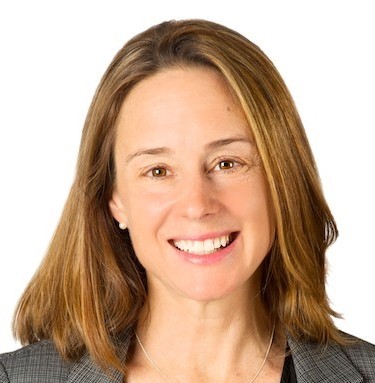
Susannah Crabtree
Susannah Crabtree
- Ottawa, Ontario
Susannah Crabtree is the Senior Vice-President of People and Culture with EDC, a Canadian Crown Corporation. In this role she sits on EDC’s executive leadership team and oversees the full suite of human resources operations, programs, and HR strategy and advisory services.
Susannah has more than 20 years of experience leading and consulting in all aspects of human resources and talent management. Most recently, as a partner with Mercer she led the national compensation, communications, and talent strategy consulting practice for its Canadian operations. She specializes in executive and board succession planning; leadership assessment and development; board effectiveness; diversity, equity, and inclusion; total rewards and performance management; communications; and strategic risk management.
Susannah has a deep passion for mental health and has been exposed to its importance in Canadian society through all facets of her life, including her studies, volunteer work, professional career, and her lived experience. She has a profound interest in corporate governance and has achieved the ICD.D designation in 2021. Susannah is also a fully qualified actuary and has completed several leadership certifications. She is currently serving as past-chair for the YMCA-YWCA of the National Capital Region. Susannah holds a bachelor of science in psychology and mathematics from McGill University and is fluently bilingual in French and English.